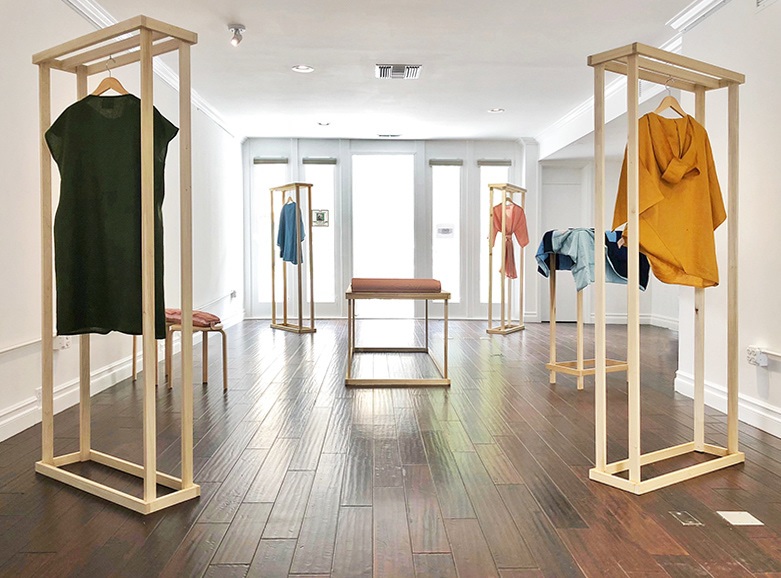
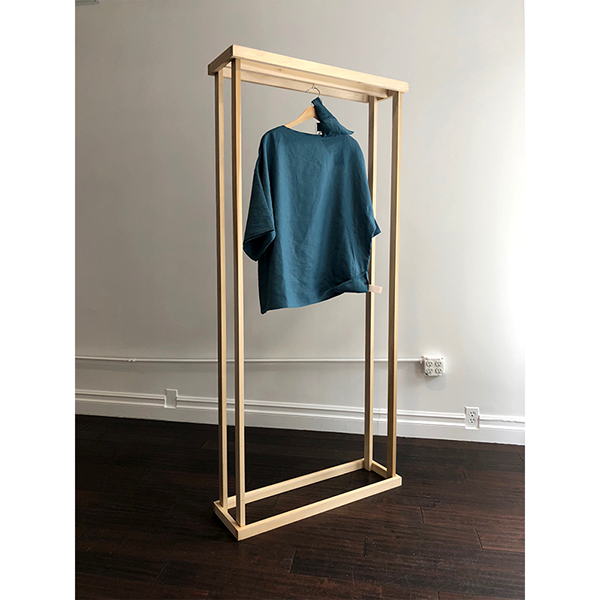
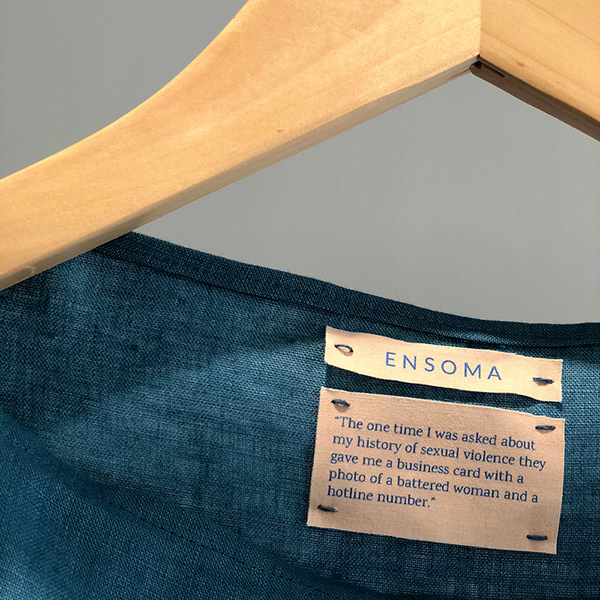
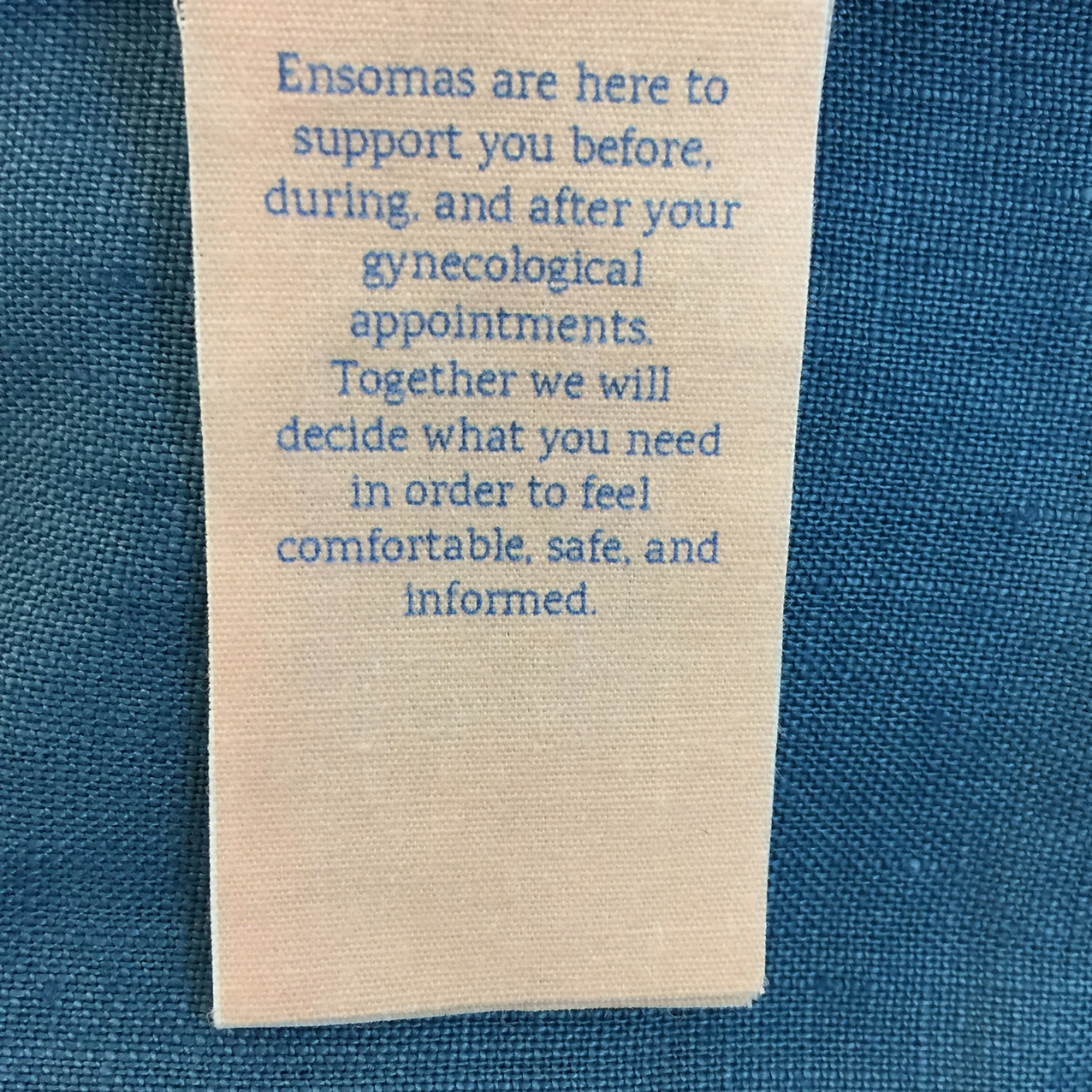
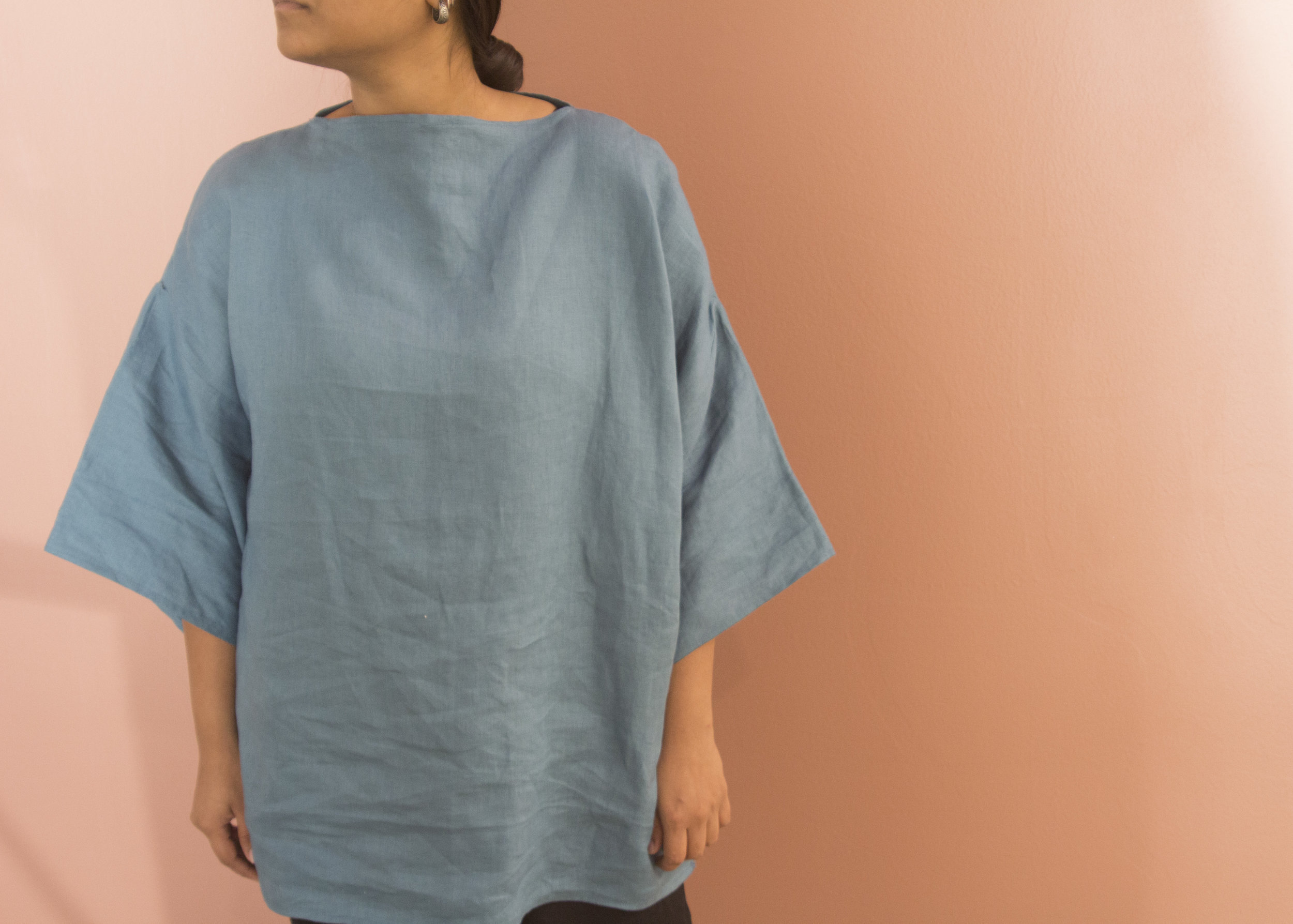
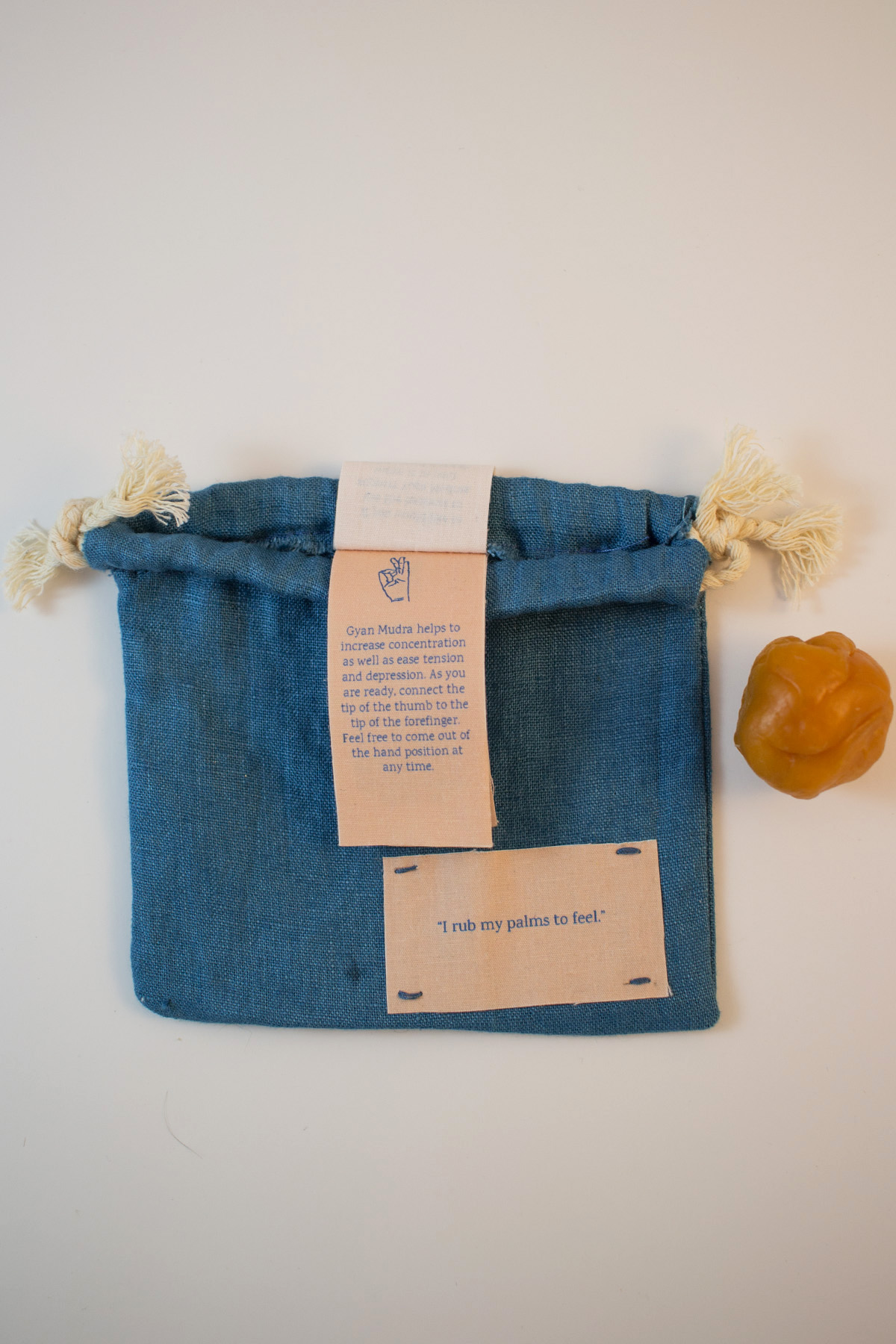
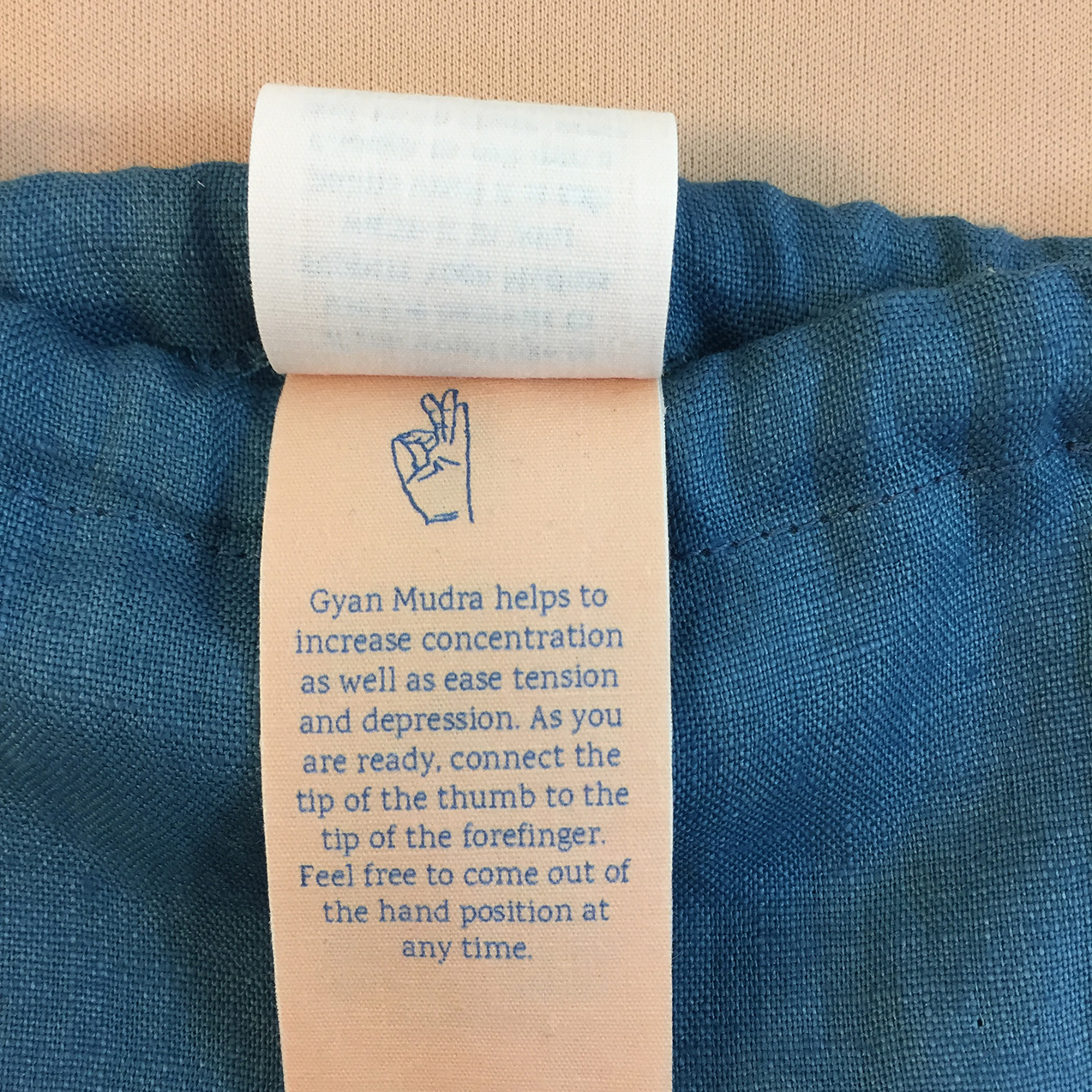
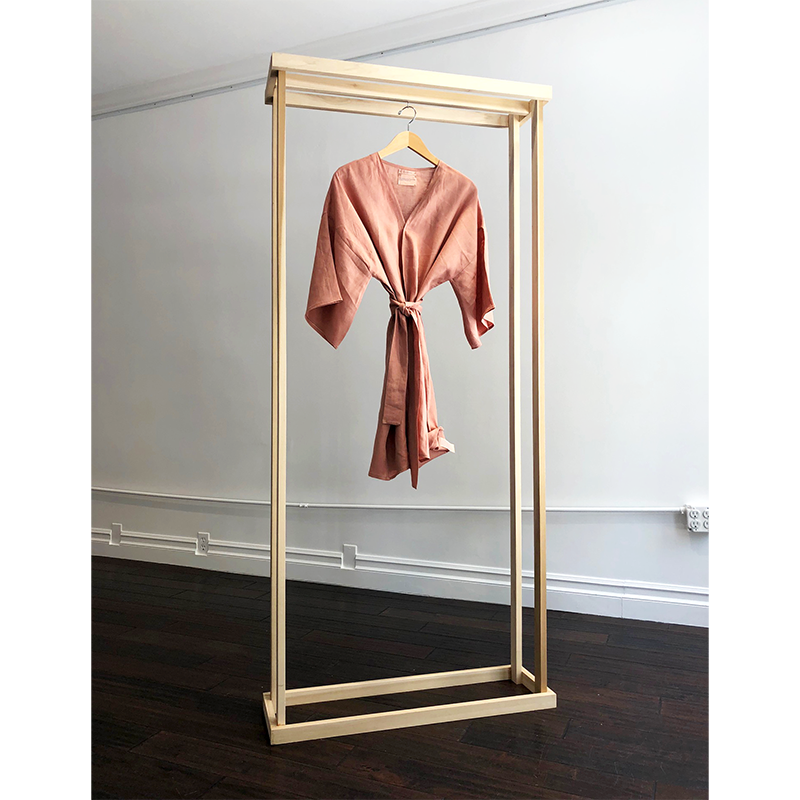
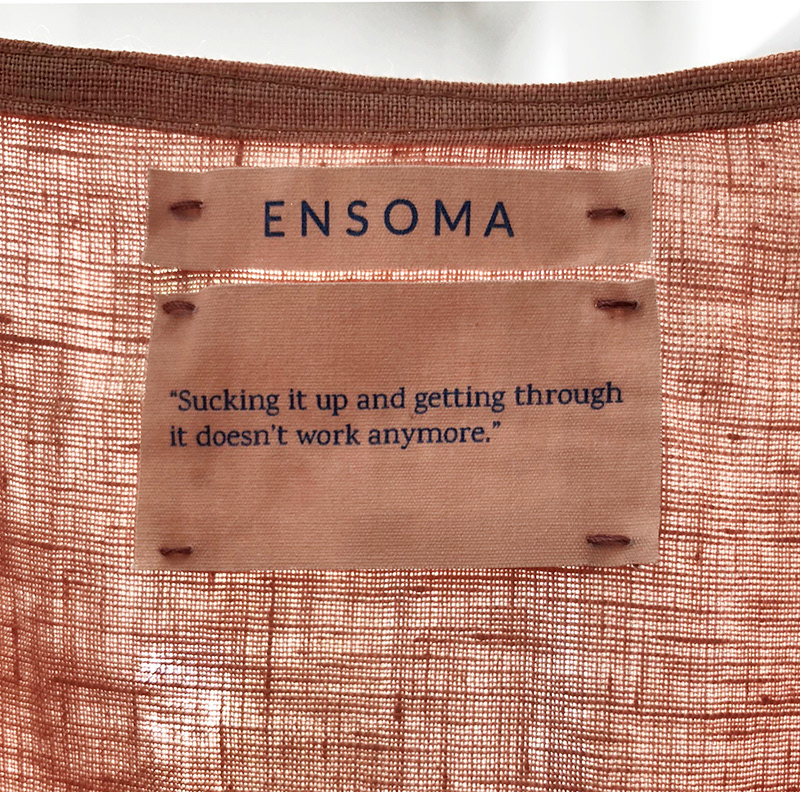
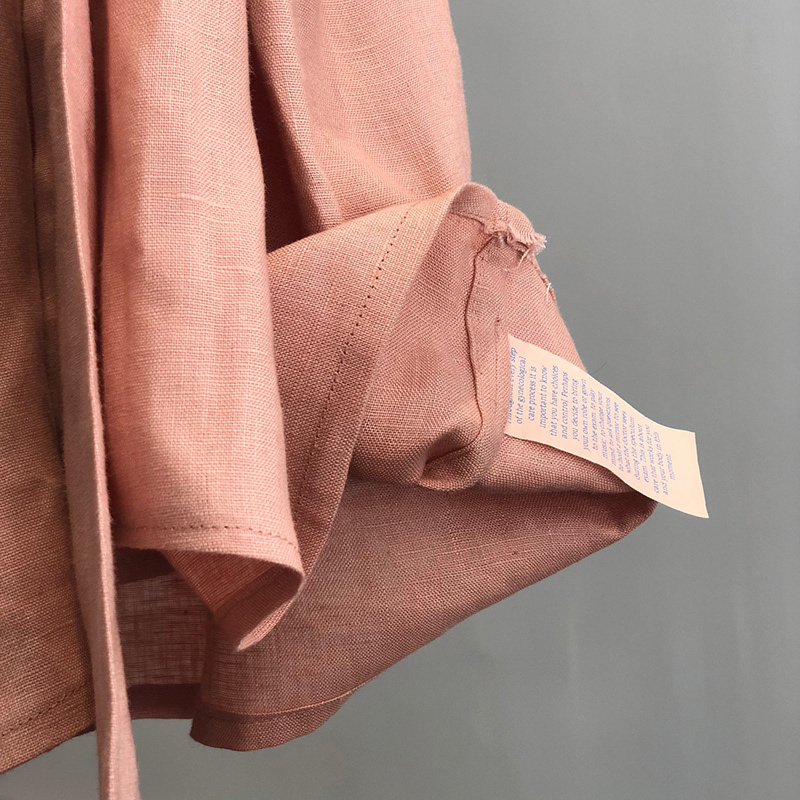
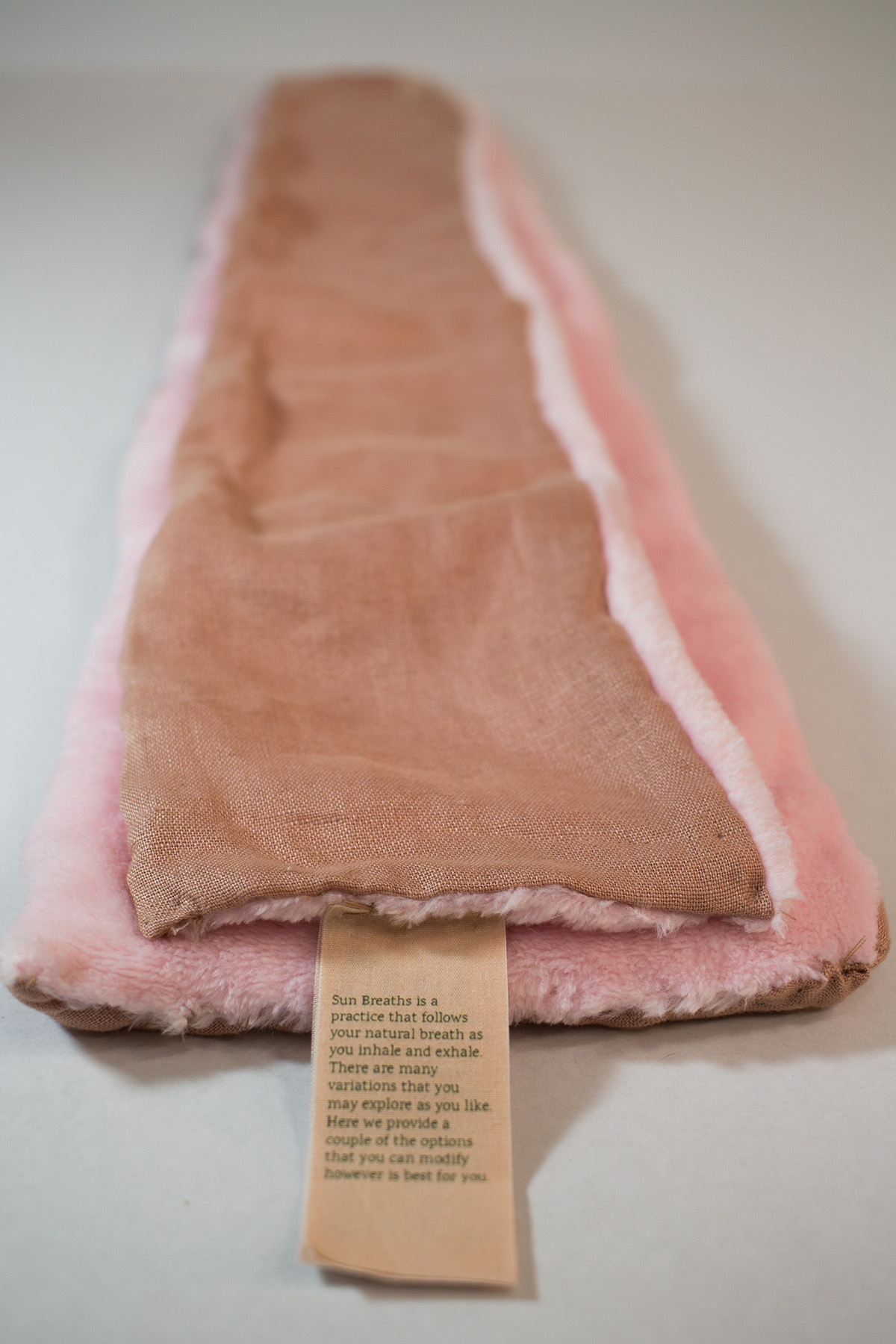
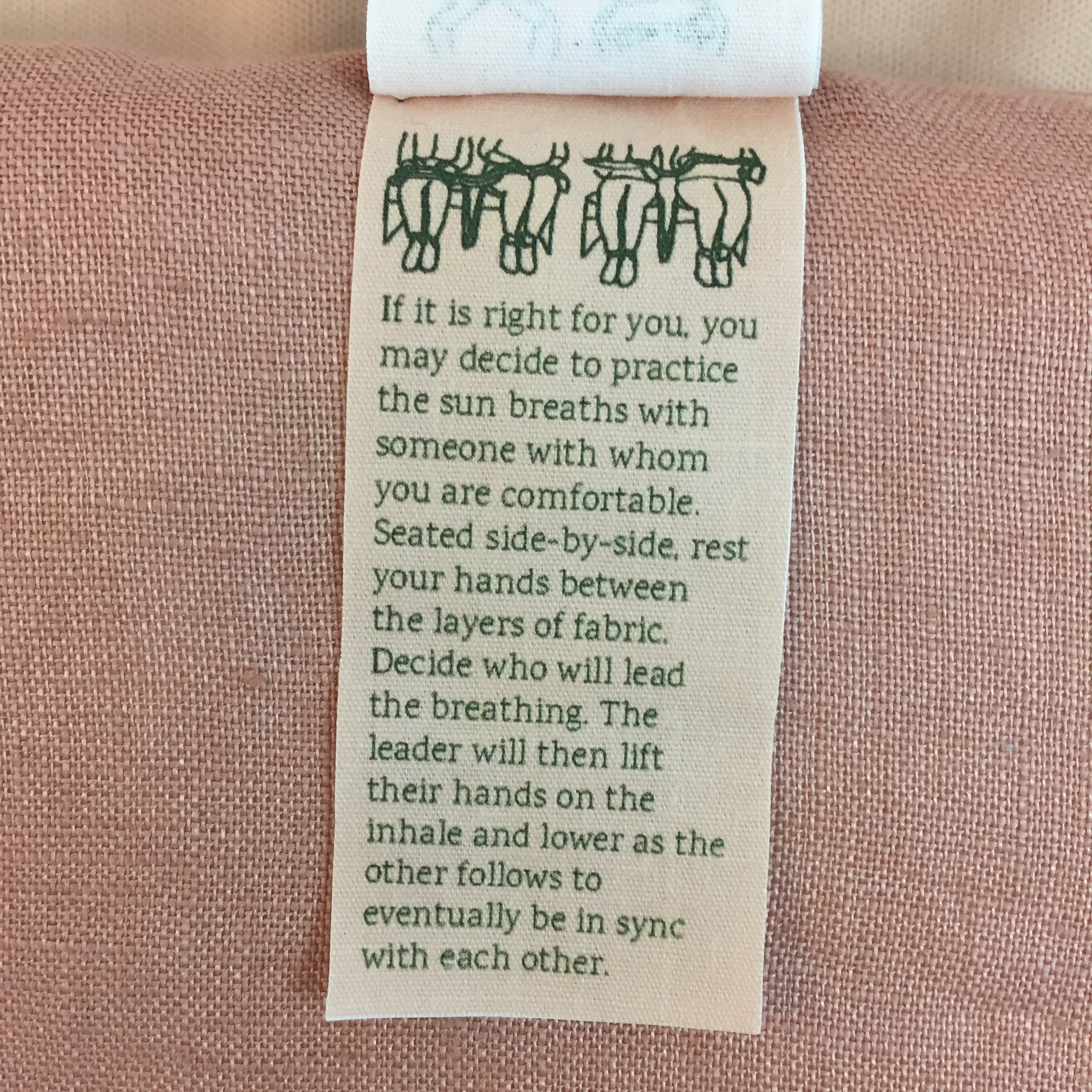
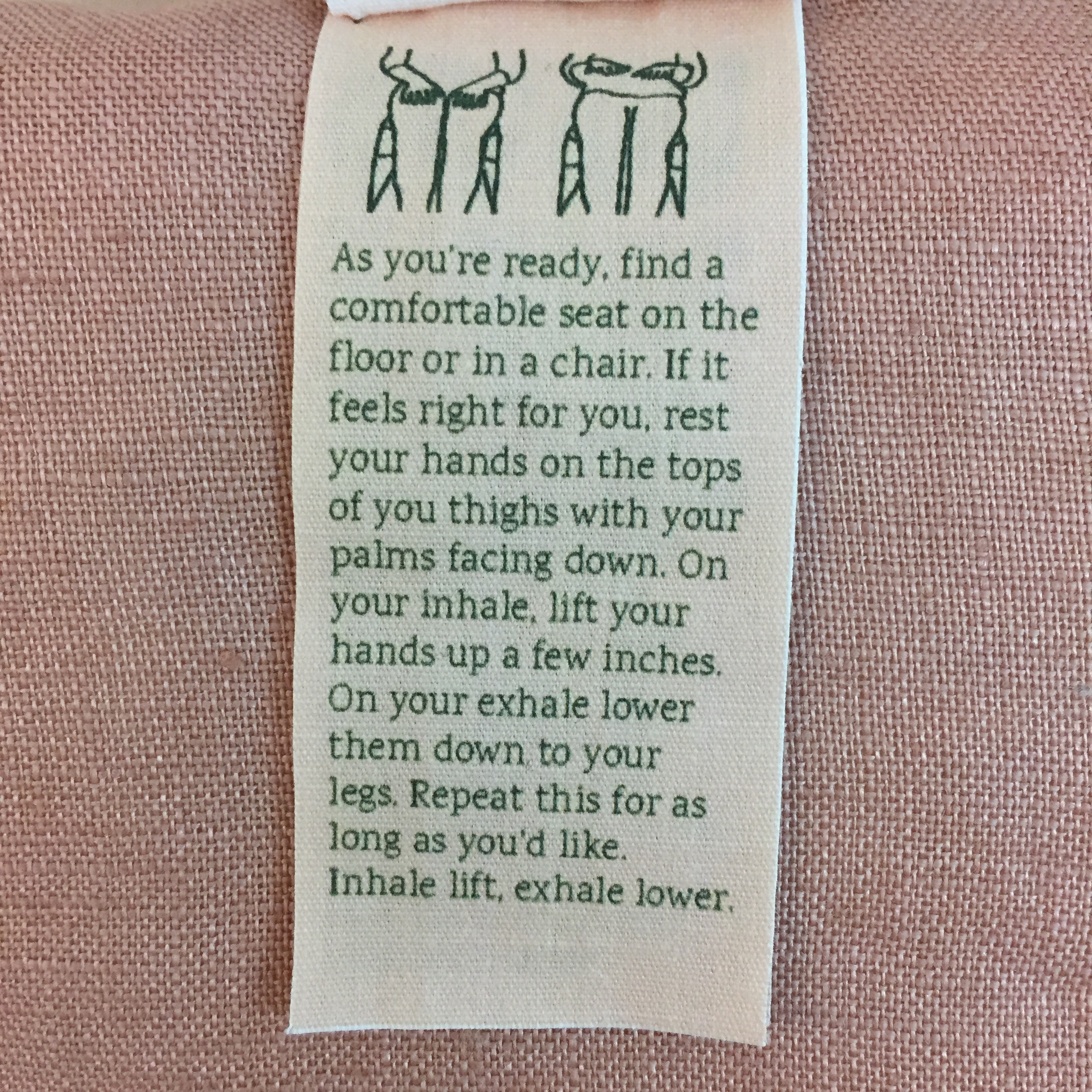
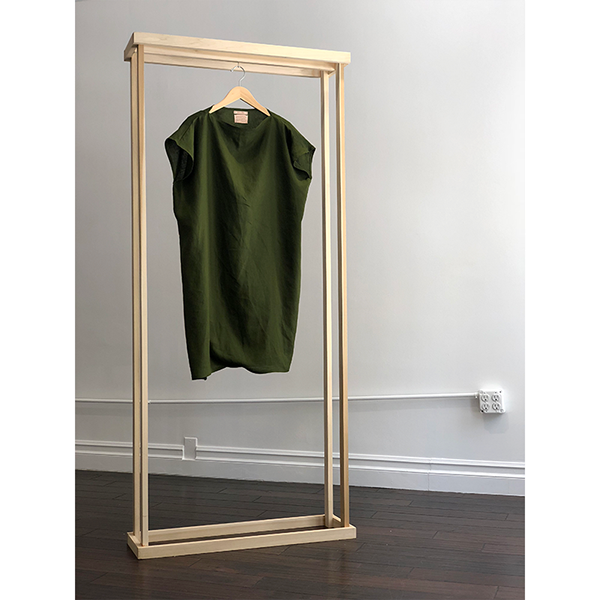
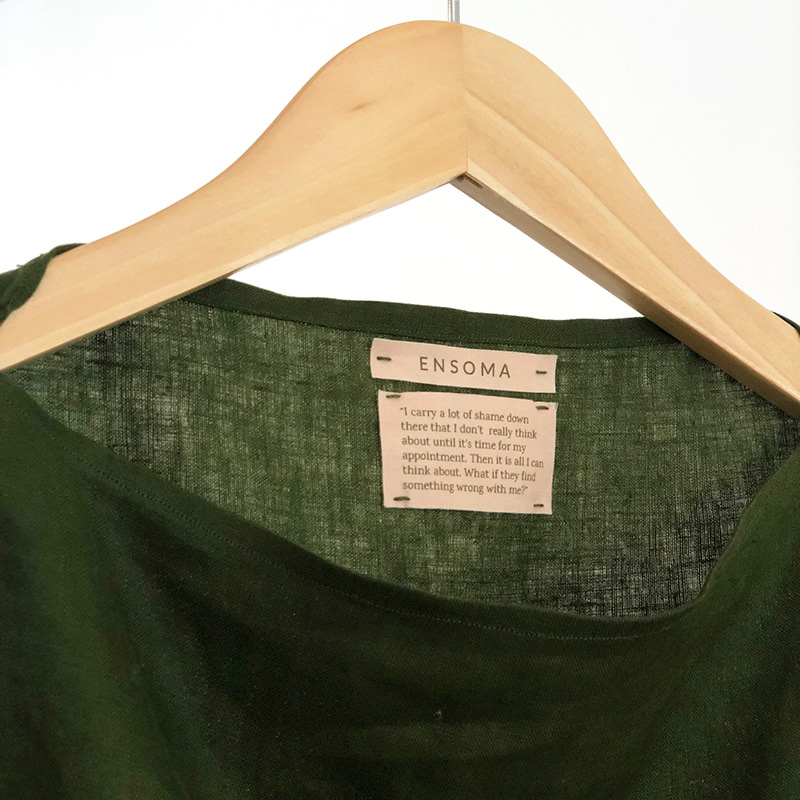
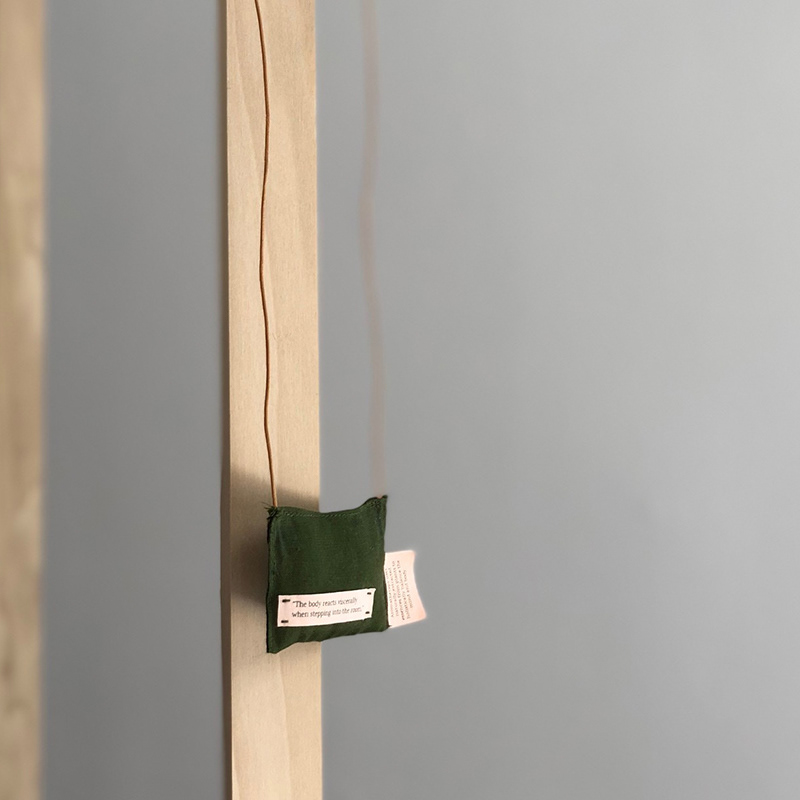
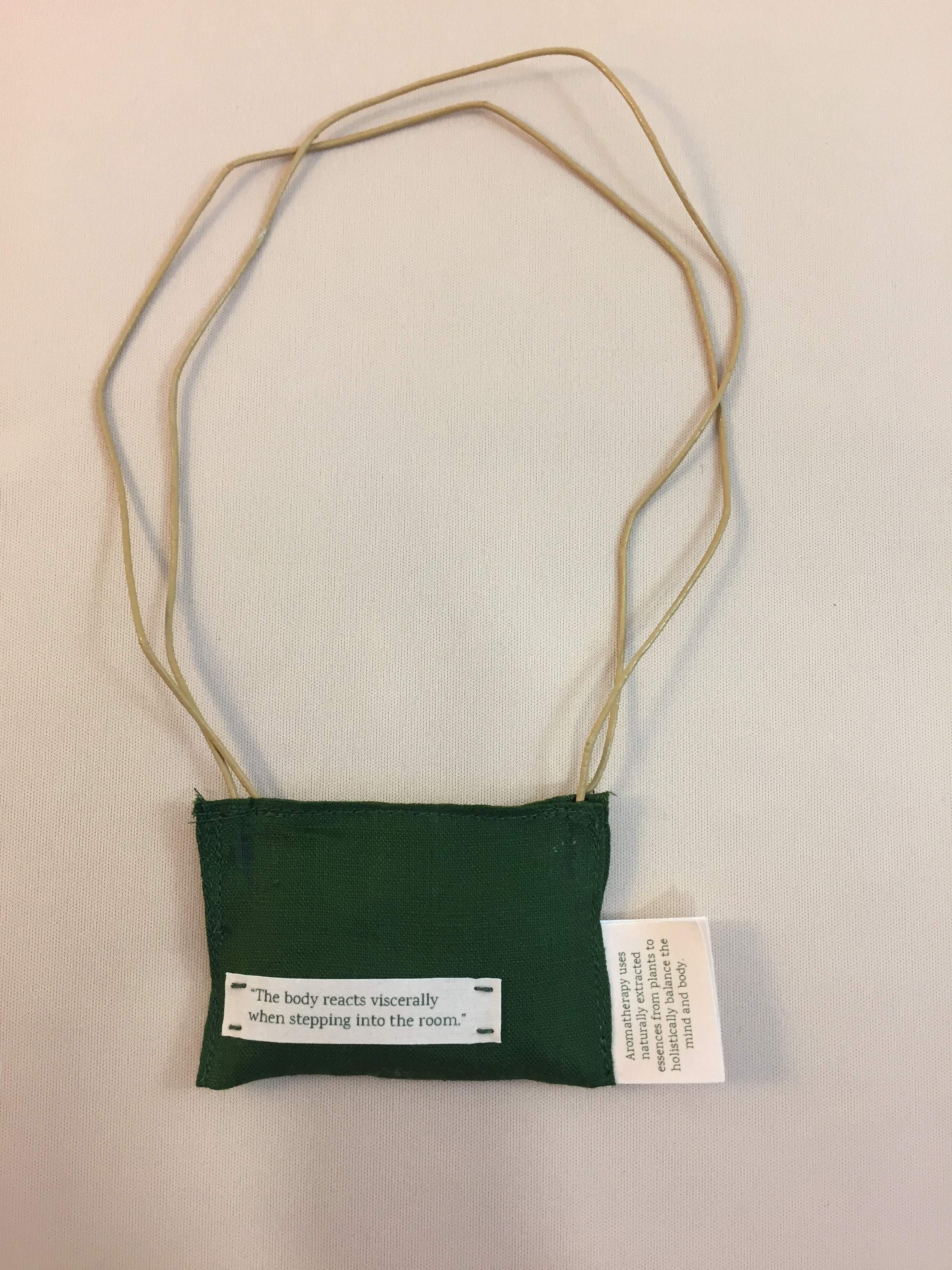
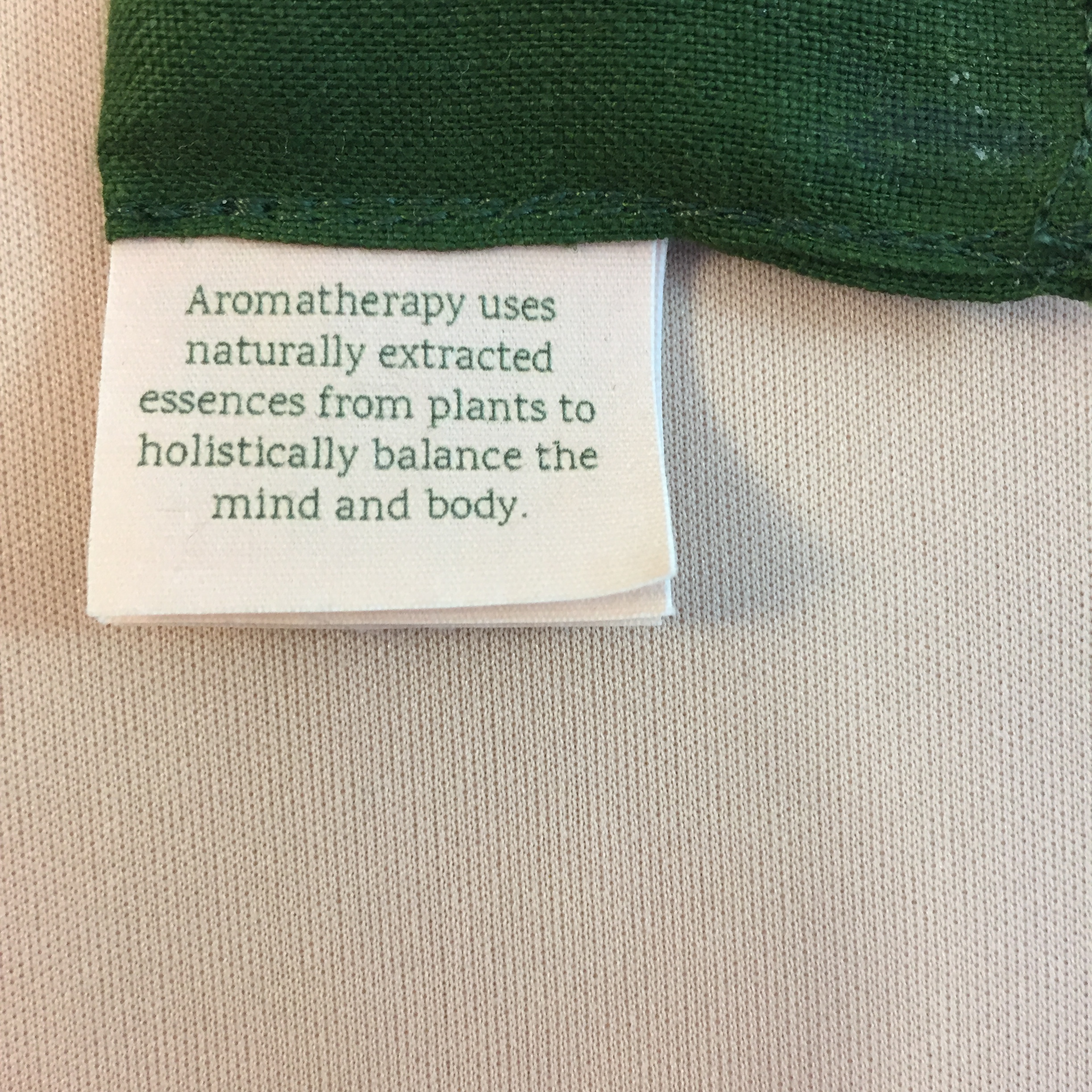
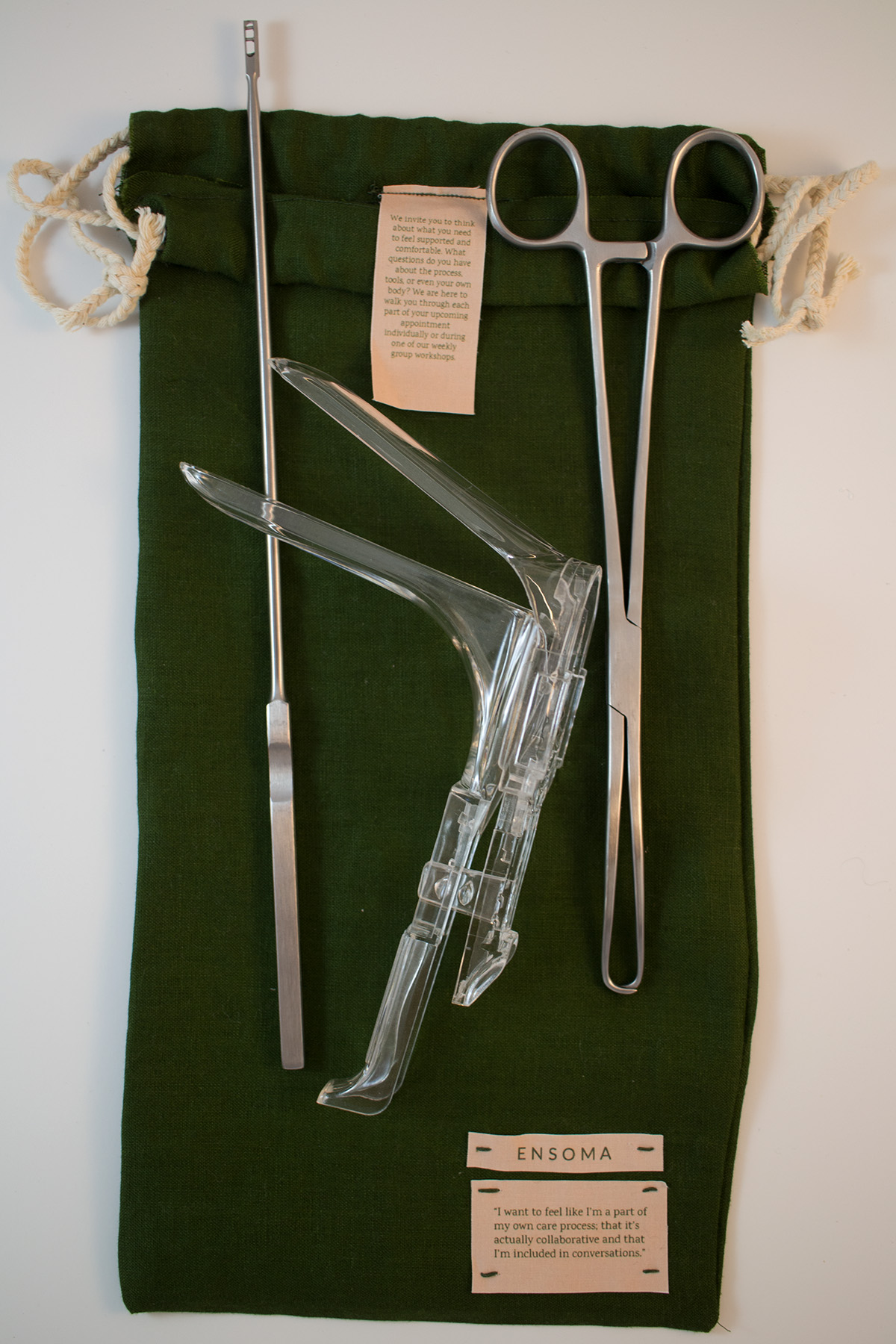
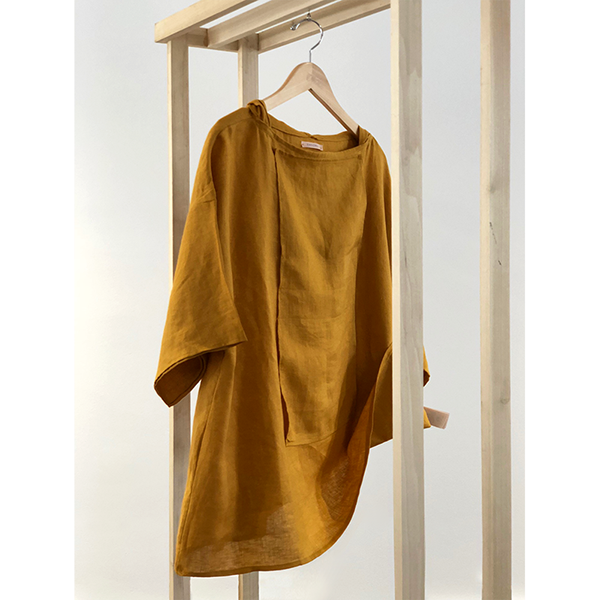
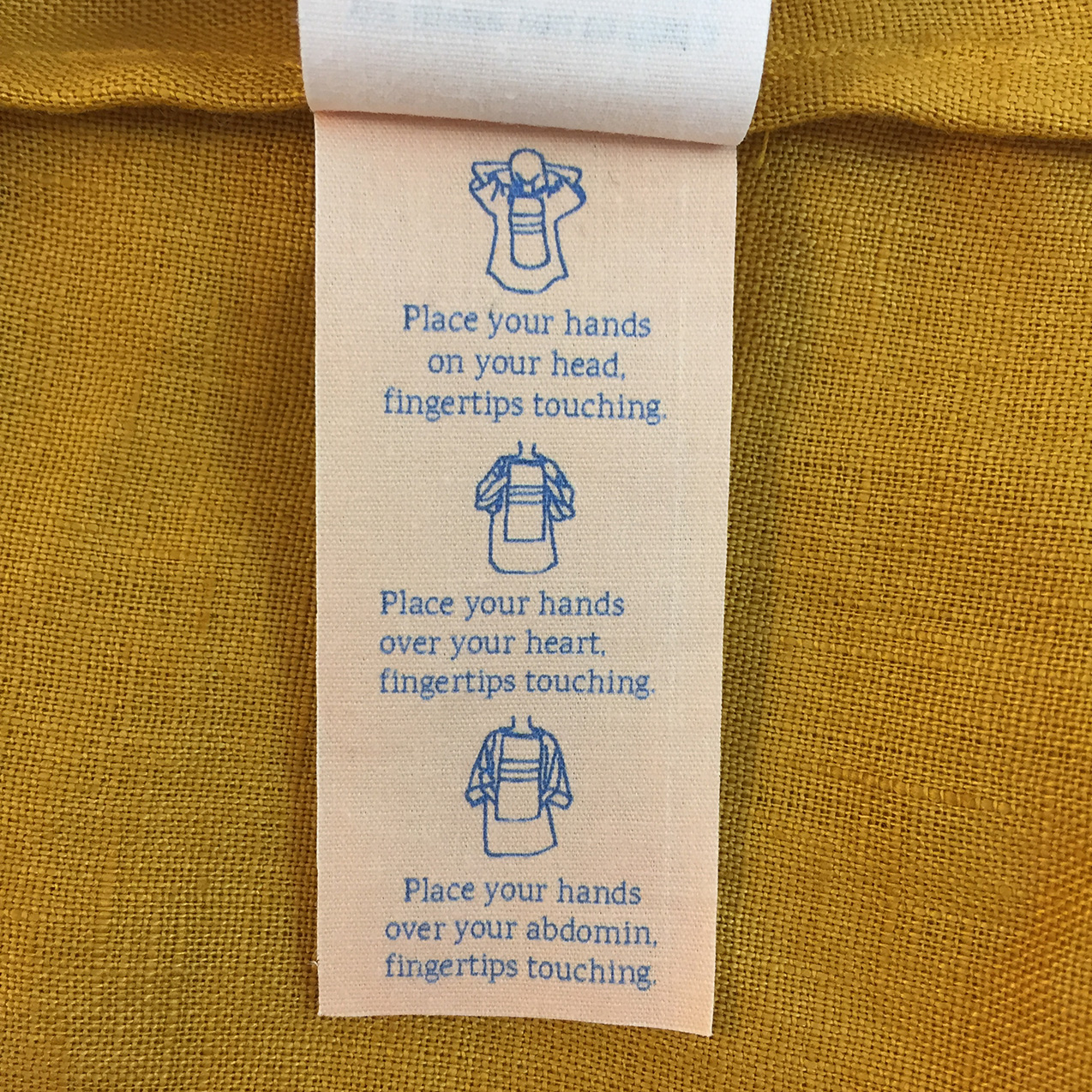
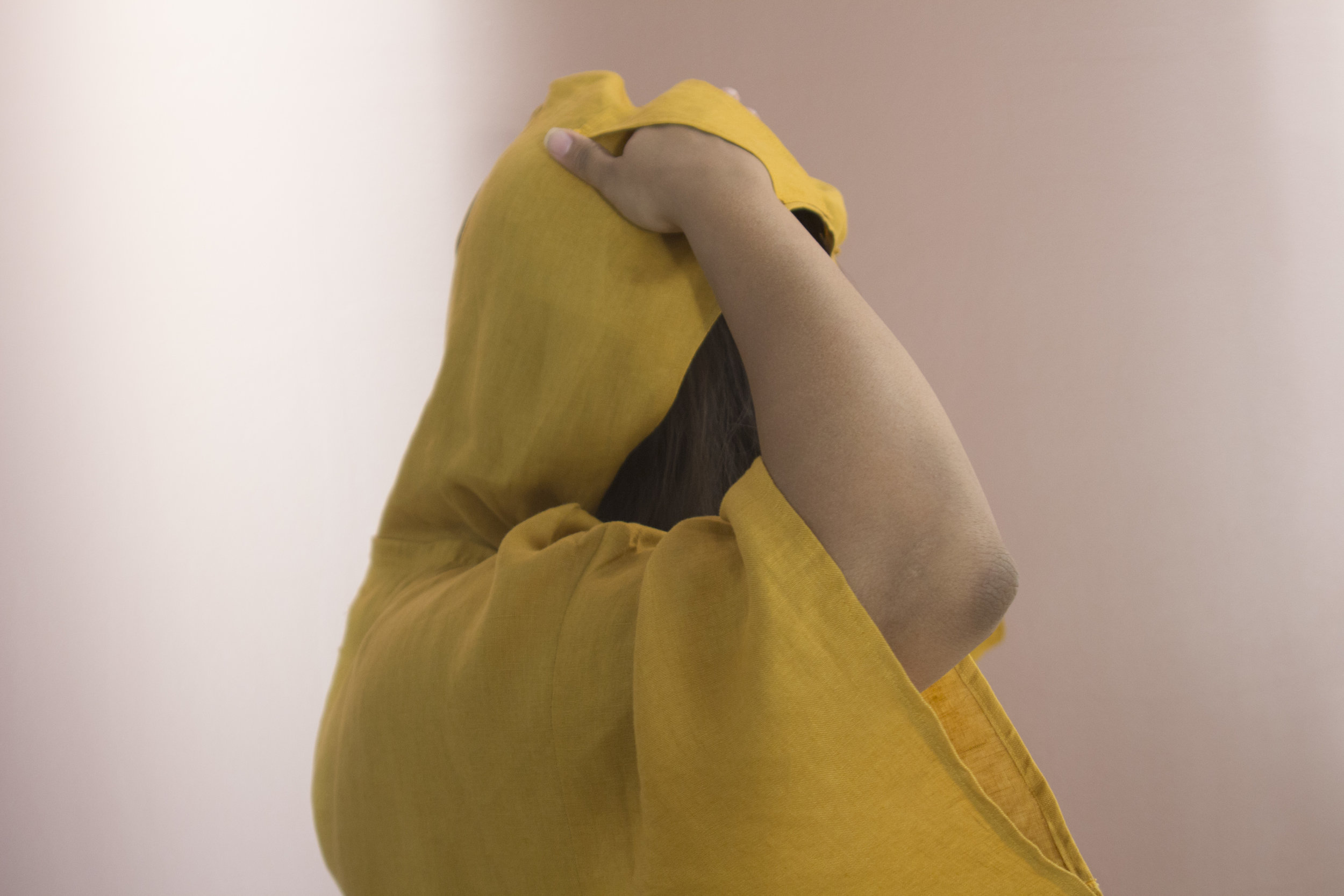
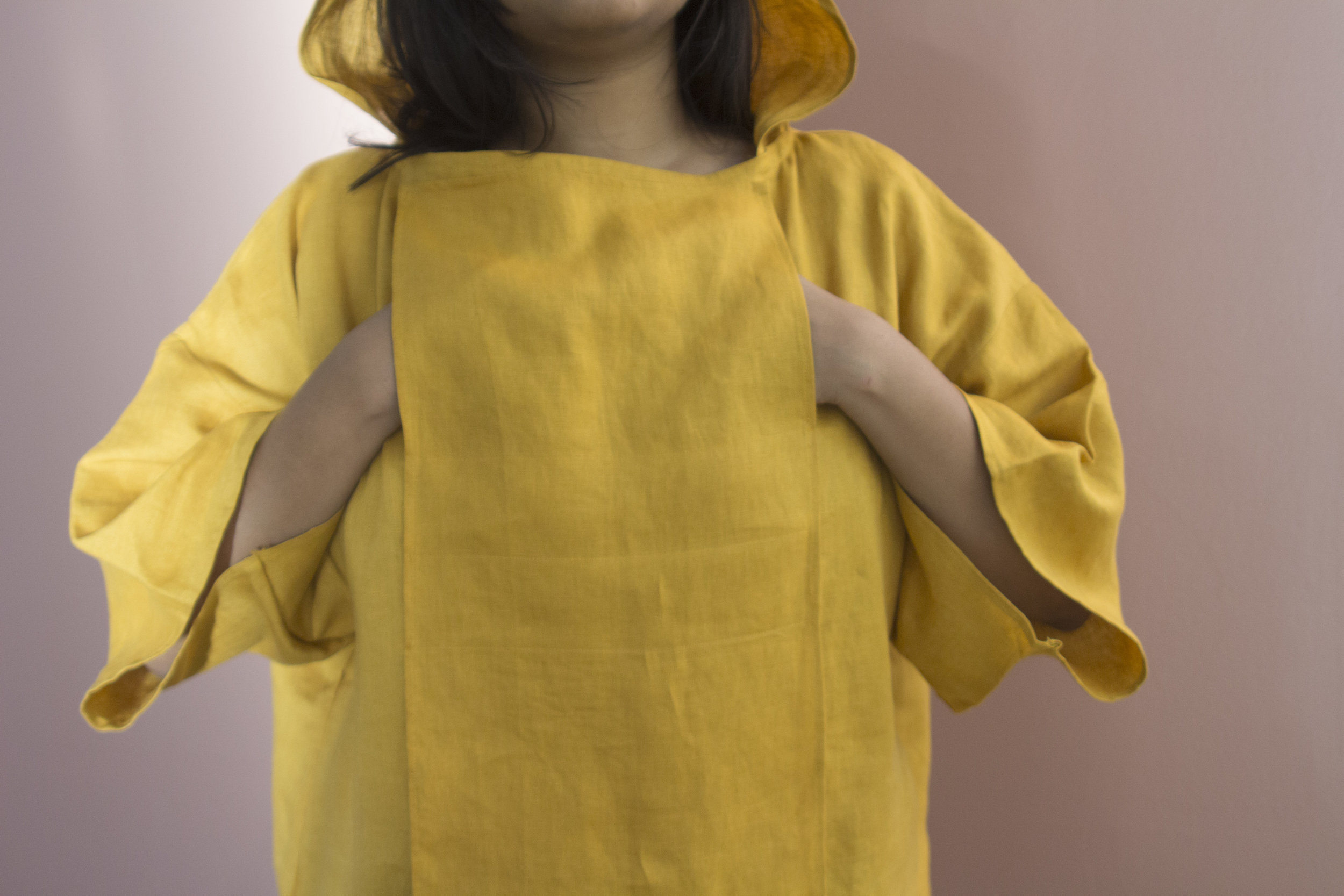
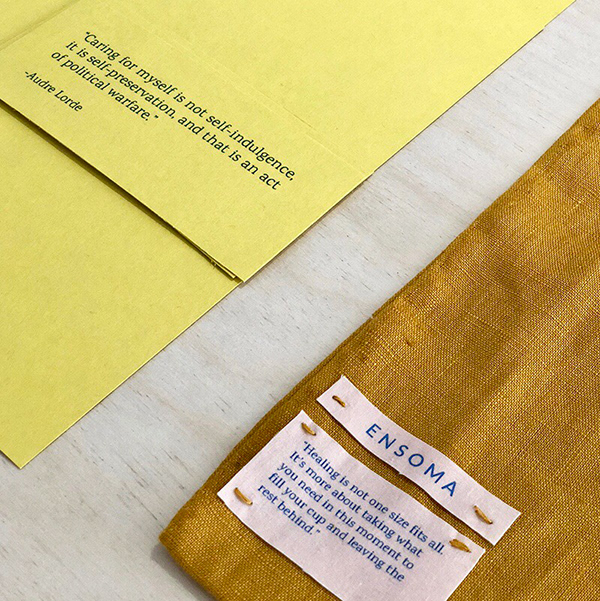
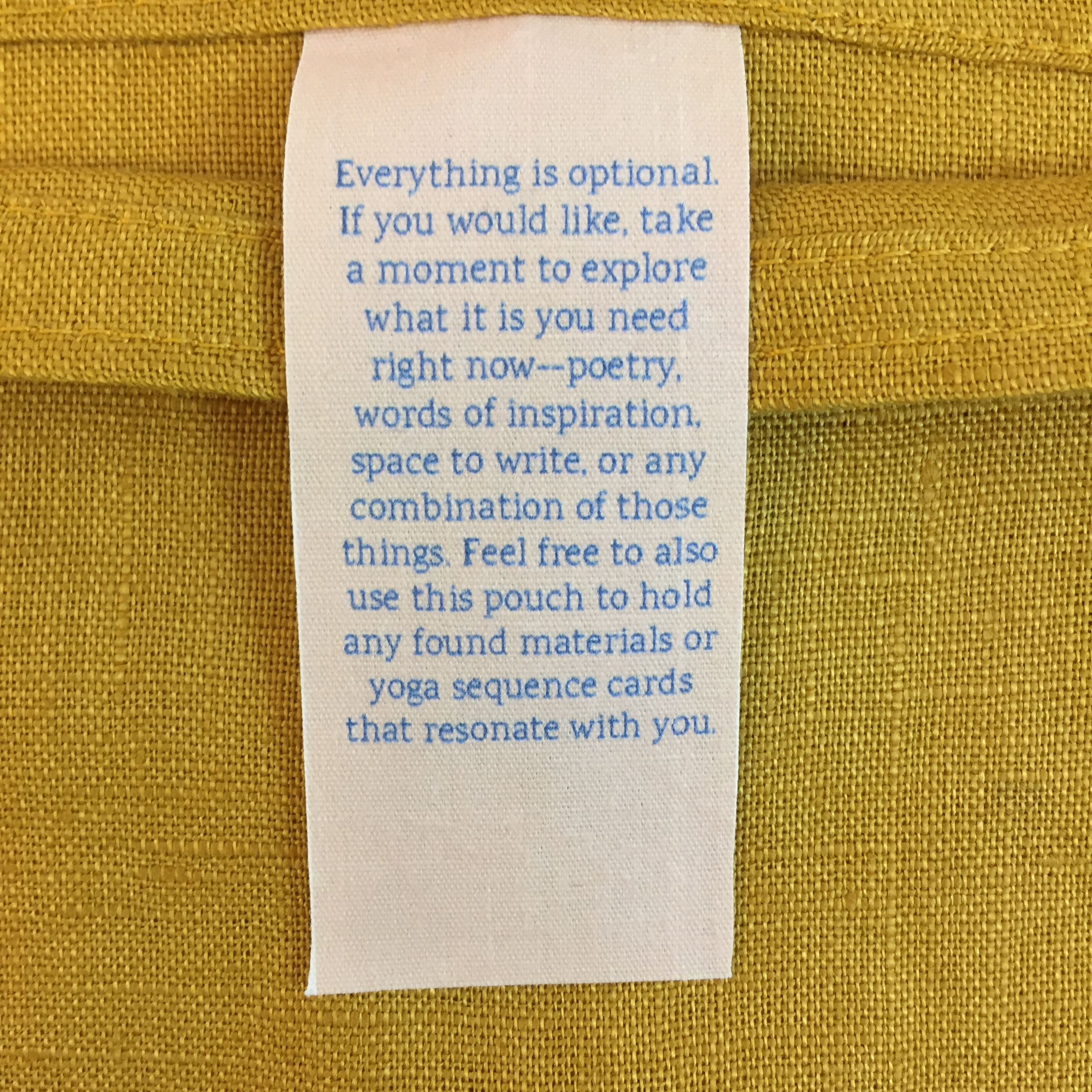
(Installation photos by Alaska Sohne)
Ensoma, a variation of the Greek word ensomatóno meaning embody, is one response to the question of what gynecological care would look like if determined by survivors of sexual violence. Existing between the home and care clinics, Ensoma supports survivors prior to and throughout their exams. The embodied practices and people that make-up this space are based on intimate research with survivors whom articulated a collective desire to move from universal routine care to informed, personal, and ritualized care that helps them to feel safe and seen.
This project is in response to our collective lack of discourse about the embodied ramifications of trauma on individual well-being. We are in a time of cultural reckoning as personal stories reveal the severe and pervasive impacts of sexual violence. One of our responses must be to center care around survivors and, more specifically, collaboratively re-design care practices which can trigger responses such as flashbacks, dissociation, or even avoidance of potentially lifesaving care.
Over the course of the project I worked with many women--doctors, midwives, anthropologists, doulas, and body workers--but for this part of the project I worked directly and intimately with 4 survivors of sexual violence. They are 4 women of color, one identifies as queer, one is a mother, they are between 20-40 years old, and between the 4 of them they have experienced at least 10 incidents of sexual violence between childhood and adulthood. These are voices we rarely hear in settings of care for many cultural, systemic, and personal reasons. They talked about shame, fear, and not knowing who is safe to reach out to.
Each color within this space represents a person and each object within Ensoma emerged out of the intimate conversations. The pieces contain care tags with instructions on how to use each object as a way to practice self-care before, during, and after their appointment. The language used puts the survivor in control of how they participate with phrases also used in trauma-informed yoga spaces such as: “when you are ready”, “feel free to”, if you would like”, “we invite you to…”. At the same time, there is a physical built-in sensibility such as the choice to make with linen to reflect one survivor’s comment that she wishes she could soften the world.